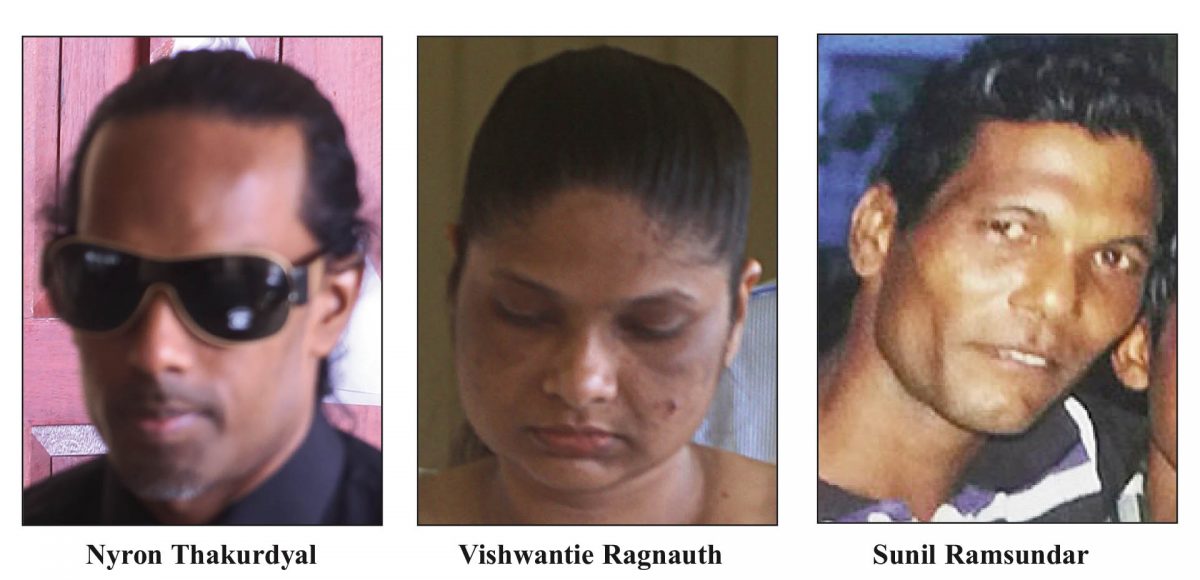The Court of Appeal yesterday set aside the conviction and 40-year sentence handed down to husband and wife, Nyron Thakurdyal and Vishwantie Ragnauth back in 2018 and ordered that they be retried at the next sitting of the Demerara Criminal Assizes.
The appeal was heard by acting Chancellor Yonette Cummings-Edwards and Justices of Appeal Dawn Gregory and Rishi Persaud.
In her ruling yesterday, the Chancellor said the defence’s case should have been properly put to the jury.
She said taking into consideration the evidence that was provided to the High Court, the jury also ought to have been directed accordingly.
As such, in the interest of justice and fairness to the couple, the court ordered that their conviction and sentence be set aside and that they be retried in the next criminal session which opens in January, 2023.
Thakurdyal and Ragnauth were accused of murdering Patentia miner, Sunil Ramsundar on December 26th, 2014.
On June 15, 2018, they were both found guilty of the charge and subsequently sentenced by Justice Sandil Kissoon to 40 years imprisonment each.
Throughout their trial, the evidence of various witnesses, including from daughter of the deceased, Zalena Ramsundar, and from the accused in their own unsworn statements, confirmed that there was an altercation among the three on the night that Ramsundar died. What was in dispute, however, was whether the fatal injuries Ramsundar sustained were as a result of the altercation.
Zalena had testified that on the night of the killing, her cousin, Ragnauth, had gone outside into the passageway alongside their house after her father returned, quarreling. She had testified that her father had an encounter with Ragnauth and Thakurdyal just five minutes before, after his sister came claiming that Thakurdyal had beaten her.
In the second instance, she said an argument ensued between them and Ragnauth pushed her father and he pushed her back. Then, the man reportedly grabbed her hands and pinned them to the fence, causing Ragnauth to scream and “kick up” in defence.
Her screams brought Thakurdyal, who grabbed Ramsundar’s hands and held them up. Zalena had said she saw Ragnauth hit her father in a cuffing motion and that Thakurdyal also did the same. She testified that they hit him in the head, neck, back and hands. She, however, had also admitted to not seeing a knife in their possession, and the defence had argued that the cuffing motion demonstrated by Ragnauth was because she was trying to get out of Ramsundar’s grasp.
The defence’s case was that there was no evidence of the accused being in possession of a knife on the night in question—which was supported by Zalena’s testimony that she never saw a knife at the scene—and that it was possible that the fatal injury that Ramsundar sustained, a puncture to the main artery in his neck, could have been caused by an object protruding from the fence.
Thakurdyal’s and Ragnauth’s appeal was presented by attorneys-at-law, Nigel Hughes and Narissa Leander.
The state was represented by Prosecutor Diana O’Brien.






